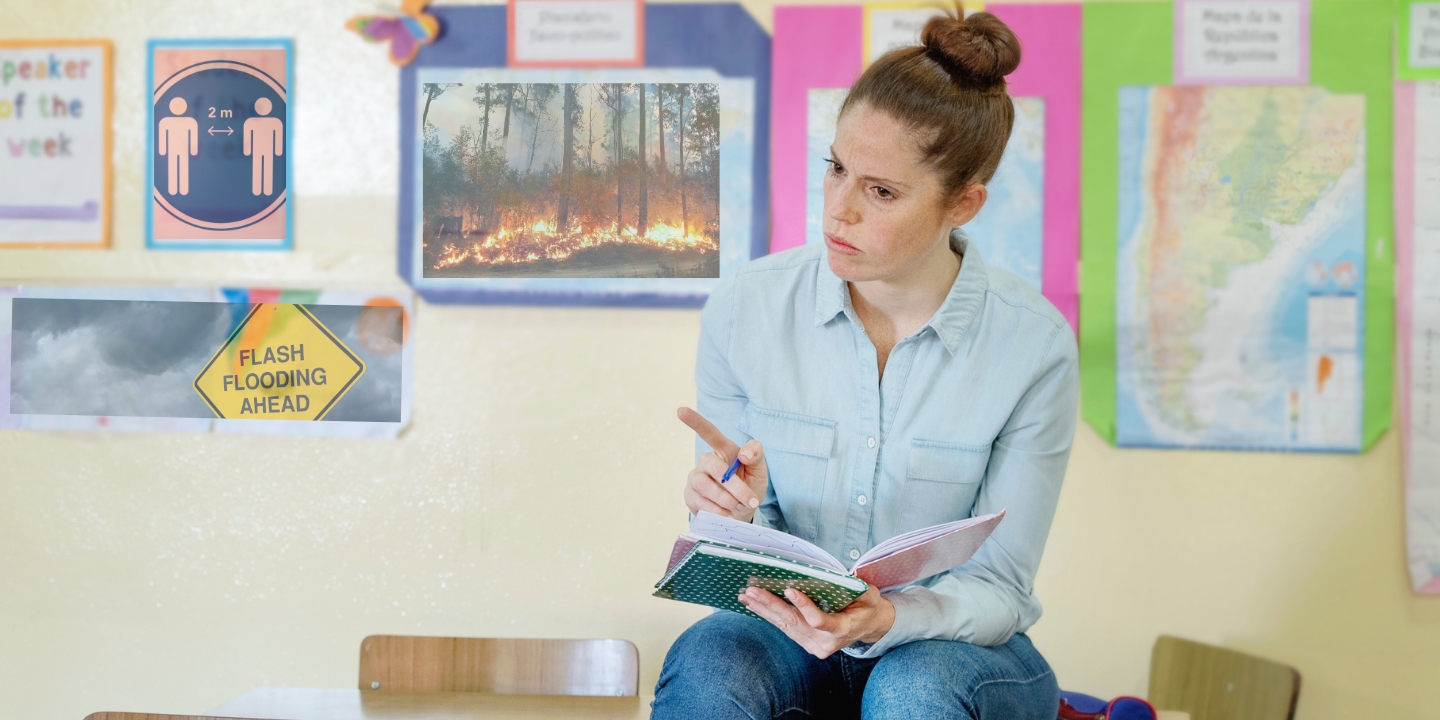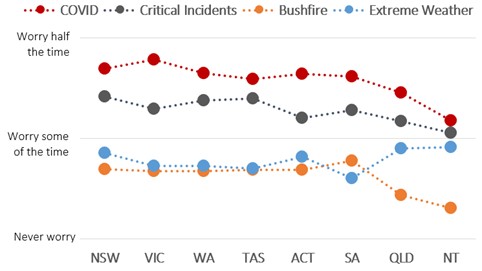
Worried teachers report multiple, ongoing concerns
Research 17 Jul 2023 5 minute readPlease be advised this article may cause some readers distress.
More than 1 in 5 Australian secondary school teachers surveyed experience frequent worry about critical incidents like suicide, at similar levels to their worry regarding COVID-19 at the peak of the pandemic, new research indicates.
In the first Australian study of its kind, researchers Tamara Van Der Zant and Dr Katherine L Dix from the Australian Council for Educational Research (ACER) measured educators’ levels of worry about ongoing concerns alongside those associated with COVID-19.
The research – Worry about COVID-19 and other extreme events amongst educators in Australia – also found that early childhood educators reported the greatest burden of worry overall, and recommended further study to determine why.
The responses of more than 3200 educators from nationally-representative locations across preschool, primary and secondary school informed the research.
They were captured in mid-2021, at a time when the pandemic was taking a significant toll and soon after Australia’s 2019-20 extreme bushfire season and widespread flooding in New South Wales and Queensland.
Educators were asked how often they worried about extreme weather, bushfires, pandemics such as COVID-19, and critical incidents like the death or suicide of a child, young person or colleague.
‘Our results found that teachers working with secondary school students reported, on average, being worried “sometimes” to “half the time” about critical incidents, with 22.5% reporting being “often” or “always” worried,’ the researchers said.
‘Of greatest concern is that for many educators, their level of worry about a critical incident happening in their community is comparable to and compounded with their level of worry about COVID-19.'
The research paper noted that suicide is the leading cause of death for young Australians (with 99 occurring in the year prior to responses being collected). It also reported that teachers, globally, experience considerable distress following the death of a student, with it impacting on both their personal and professional lives.
Other findings of the research include:
- Educators in preschools and secondary schools had higher levels of worry than those in primary schools.
- Preschool educators were more worried than primary school educators about bushfires and extreme weather, and more worried than both primary and secondary educators about COVID-19.
- Levels of worry about critical incidents were higher among secondary school teachers than primary or preschool educators.
- Those from socio-economically disadvantaged communities were ‘significantly more worried overall’, reporting higher levels of concern about bushfires, extreme weather and critical incidents than those in more affluent communities.
- There was no difference in levels of worry about COVID-19 conveyed by educators across communities of varying socio-economic backgrounds.
The levels of concern about the impact of natural disasters correlated with experiences of them in each state and territory are summarised below.
Figure 1 (below) shows state and territory differences in educators’ levels of worry, ordered from most to least worry overall.

Need for resources and interventions
The researchers noted that many of the worries experienced by educators were unlikely to subside and that more research, resources and interventions would be needed.
‘While worry regarding virus pandemics will hopefully subside as the current COVID-19 pandemic continues to resolve, the ongoing risk of critical incidents is unlikely to change,’ they caution.
‘This chronically high and ongoing level of worry experienced by teachers further highlights the need for resources and interventions that support teachers and school communities to respond to critical incidents.’
With continuing climate change causing more severe and more frequent incidences of extreme weather, worry in relation to this was also likely to increase.
‘Clearly, post-interventions in the aftermath of extreme events are necessary to manage acute impact,’ the researchers conclude. ‘However, there may also be a need for pre-interventions to better prepare educators to manage these events and their persistent concern about them in order to alleviate their worry and support their coping’.
The new research leverages data from the independent evaluations conducted by ACER of two federally-funded in-school mental health initiatives being rolled out nationally prior to the pandemic – Be You – and the Smiling Mind Primary School Program.
Anticipating the impact of COVID-19 on mental health and wellbeing, the evaluators included the ‘worry’ scale in the likely event they needed to account for the negative impact of the pandemic over and above the potential positive impacts of the initiatives.
The researchers recommend that further studies should be conducted on educator wellbeing, noting that ‘this is particularly pertinent with increasing shortages in the teaching workforce and declining perceptions of the teaching profession’
If this article has caused any issues for you, you can call Lifeline on 13 11 44 or seek support at Beyond Blue.
Read the full paper:
Worry about COVID-19 and other extreme events amongst educators in Australia